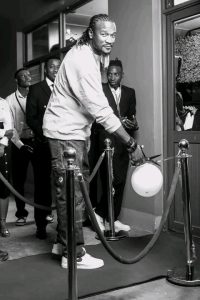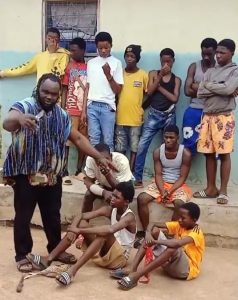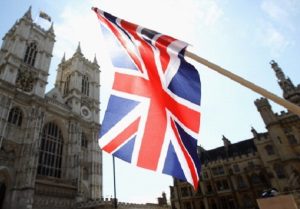Liberian speaker denies links to parliament fire
3 min readLiberia’s House of Representatives Speaker, Jonathan Fonati Koffa, has denied any involvement in a significant fire that engulfed the Capitol building in Monrovia, the country’s legislative center. Koffa, who was questioned by police in connection with the fire, firmly rejected any wrongdoing and stated that he was not responsible for the incident.
The fire occurred on a Wednesday morning, with no casualties reported as the building was empty at the time. However, the fire caused considerable damage, sending thick black smoke rising over the Liberian capital. In response, the authorities have initiated an investigation and offered a $5,000 reward for anyone providing information that could help solve the case.
Koffa, along with several other individuals, was summoned by police for questioning. He clarified to the BBC that he voluntarily spent nine hours at the police station, adding that he was not formally summoned but had willingly gone to assist the investigation. The fire broke out a day after a protest in which plans to remove Koffa from his role as speaker had escalated tensions. During the protest, several individuals, including an aide to former President George Weah, were arrested.
In the aftermath of the fire, the police questioned Koffa, Representative Frank Saah Foko, and two other individuals. Police Chief Gregory Coleman referenced a Facebook post Koffa made during the protest, which he believed needed to be addressed by the speaker. Koffa responded by emphasizing that the fire could have resulted from various causes, and if it was indeed an act of arson, it would be a “horrible” event. He denied any involvement in such an attack, stating that he had “never been, and would never be, associated with that kind of violence.”
Koffa also addressed the state of the building, noting that the portion of the Capitol that was damaged by the fire was old and deteriorating. He revealed that a contractor had previously warned officials about the risks, stating that they were “sitting on a time-bomb” due to the building’s poor condition. This remark points to the possibility that the fire could have been caused by structural issues rather than malicious intent.
The fire has come amid a power struggle within Liberia’s House of Representatives, where a faction of lawmakers claims to have removed Koffa from his role as speaker, while another group has resisted the action, declaring it unconstitutional. This internal dispute has caused further unrest within the legislative body, as both sides continue to fight over control of the leadership position. The matter has yet to be resolved despite a ruling from the country’s Supreme Court, which was unable to settle the division between the warring factions.
In light of these developments, Koffa has called for an impartial, international investigation into the fire, seeking transparency and an objective inquiry into the causes and responsibilities surrounding the incident. He stressed the importance of ensuring a thorough and neutral investigation, to avoid the situation being clouded by political rivalries.
The fire at Liberia’s Capitol building, coming amid an ongoing political crisis, has highlighted the volatile nature of the country’s current political climate. The power struggles within the legislature have deepened divisions, and the unresolved dispute over Koffa’s position as speaker has added to the tensions. The incident has also raised concerns about the safety of the nation’s institutions, particularly as the fire exposed potential vulnerabilities in the Capitol building’s infrastructure.
As the investigation continues, many are closely watching how the situation unfolds, with hopes for a resolution that will allow Liberia to move past the political turmoil and focus on strengthening its democratic institutions. For now, the controversy surrounding the fire remains unresolved, with political tensions and public scrutiny surrounding Koffa and his role in the unfolding events.





